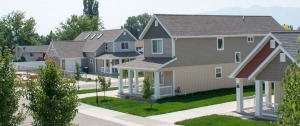Madeline’s Story
Madeline’s story is one that is common among survivors fleeing abusive situations.
*Name changed to protect identity
After experiencing years of physical, emotional, and sometimes sexual abuse at the hands of her partner, Madeline woke in the early hours of a Winter morning and knew this was her chance to get her and her two-year-old son out of this horrific situation. She grabbed her wallet, keys, slipped on a coat, and made sure her son was dressed for the Cache Valley Winter weather. After calling our hotline, Madeline made it safely to our shelter and was immediately assisted by our staff and caseworkers. To this day she still remembers the terrifying feeling that accompanied her. The feeling of not knowing how she was going to be able to support her and her young son. After meeting with caseworkers, she said she was able to establish an action plan and apply for CAPSA’s traditional housing program that would allow her to have a place to stay while she rebuilt her credit and worked towards a stable financial situation. The relief that came when she was able to move into one of our units, secure a job, and put food on the table is something she will never forget. She was able to rebuild her life using our housing services and is now living on her own, and able to care for her and her son with full confidence in herself and her abilities.
CAPSA Services are Free and Confidential
If you or anyone you know is experiencing abuse, CAPSA can provide free and confidential services. Call 435-753-2500 to speak with a trained advocate.

